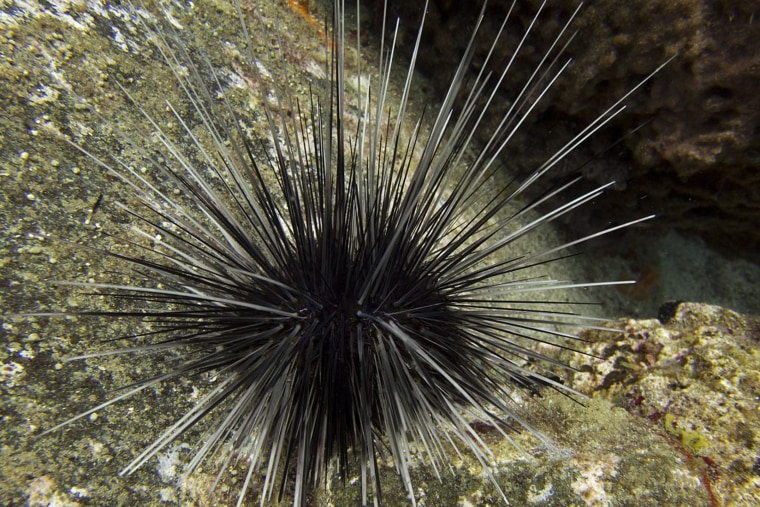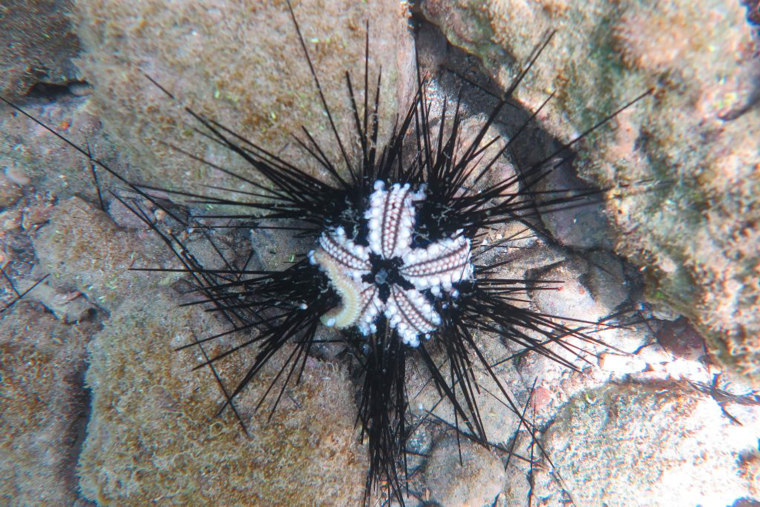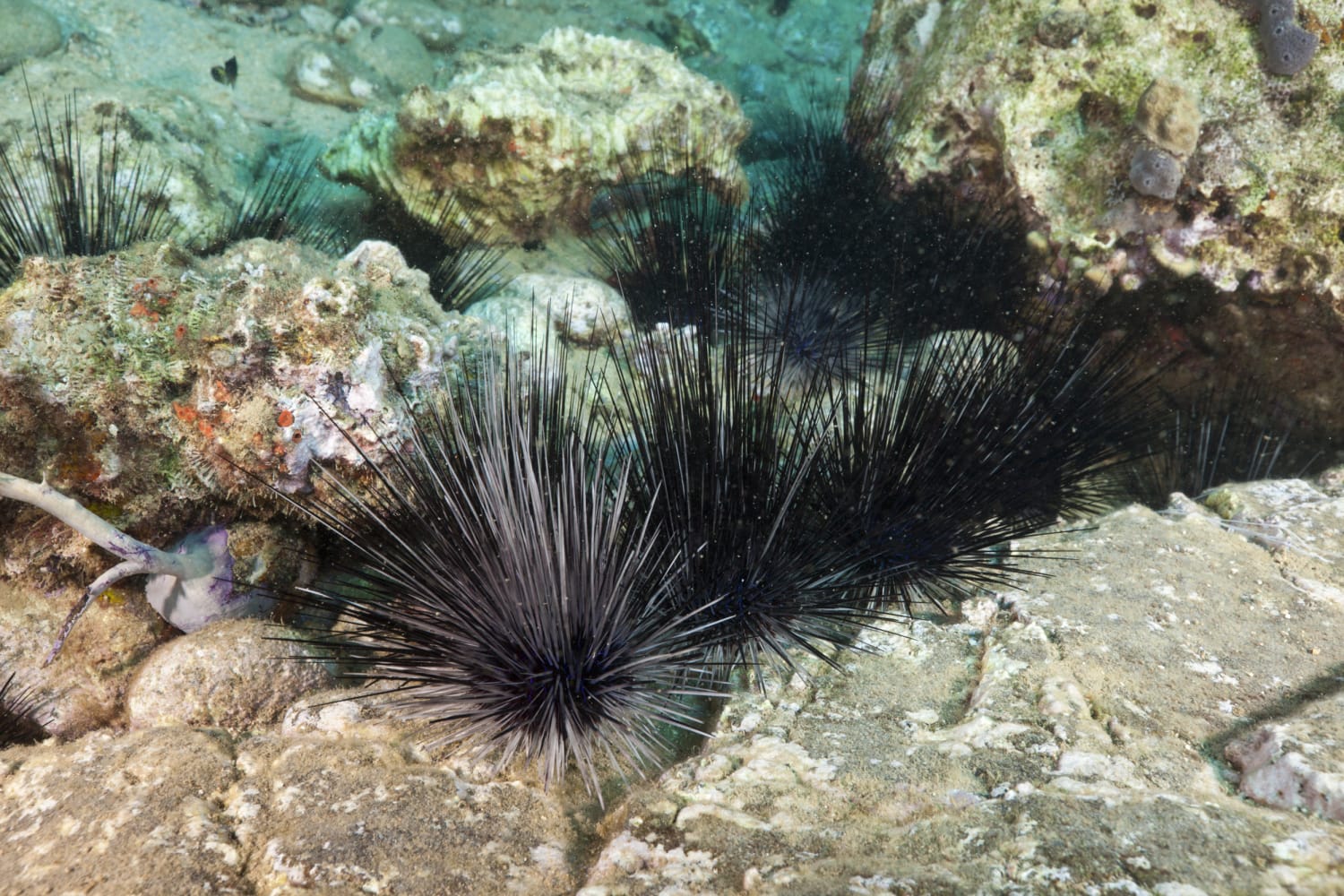Sea urchins are dying in large numbers across the Caribbean, according to scientists who are racing to pinpoint the cause of the mysterious die-off.
The rapid and widespread deaths of long-spined sea urchins (Diadema antillarum) were first observed in February in the U.S. Virgin Islands but have since spread as far west as Jamaica, according to the Atlantic and Gulf Rapid Reef Assessment, an organization that monitors the health of coral reefs in the western Atlantic Ocean and Gulf of Mexico.
Such a severe die-off of sea urchins has not been seen in the Caribbean since the 1980s, according to the research group. Scientists warn that the loss of urchins — which help maintain a healthy environment for corals to grow — could be devastating for the broader marine ecosystem.
“The 1980s die-off event is recognized as one of the main contributors to the decline of coral reefs throughout the region that we’ve observed since that time,” said Joshua Patterson, an associate professor of fisheries and aquatic sciences at the University of Florida.
That’s because sea urchins graze on reef systems, feeding on the harmful algae that can interfere with corals.
“They’re like the lawn mowers of the reef,” Patterson said. “They’re very important herbivores because they maintain the reef in a state that is favorable for coral growth and reproduction.”

It’s not yet known why the urchins are suffering — or how to stop the situation from deteriorating.
More research is needed, but Patterson said it’s possible that a parasite, a virus or bacteria in the marine environment may be to blame.
Warmer ocean temperatures due to climate change may also be a factor, though it can be difficult to tease out those direct links, said Keri O’Neil, a senior scientist at The Florida Aquarium.
“We certainly can’t say for sure, but in general, animals that are consistently stressed are going to be more susceptible to disease,” she said.
As such, seemingly small shifts in ocean temperatures can have outsize consequences, O’Neil said.
“One or two degrees might not sound like a big change, but it’s like all of the animals in the coral reef ecosystem are repeatedly running a fever,” she added.
The Atlantic and Gulf Rapid Reef Assessment first recorded extensive die-offs of long-spined sea urchins in mid-February within a harbor in St. Thomas, in the U.S. Virgin Islands. By the end of March, similar patterns of mortality were independently observed in St. John, Saba, St. Eustatius, Dominica, St. Vincent and Jamaica, the organization said.
“When it hits an area, it hits pretty hard,” Patterson said. “We’re looking at around 90 to 95 percent mortality rates.”

When a long-spined sea urchin dies, it typically sheds its signature spiky, black extremities, which can grow up to 8 inches long. As the living tissue wastes away, the dying urchin usually comes detached from where it was anchored in place, O’Neil said.
“It’s extremely unusual because they’re kind of rolling around like tumbleweeds,” she added.
A Caribbean-wide initiative called the Diadema Response Network has been set up to track the die-offs and collect samples of the dying urchins. In addition to treatment options, the researchers are hoping to better understand what’s causing the deaths and how future mass mortality events can be averted.
Source: | This article originally belongs to Nbcnews.com









